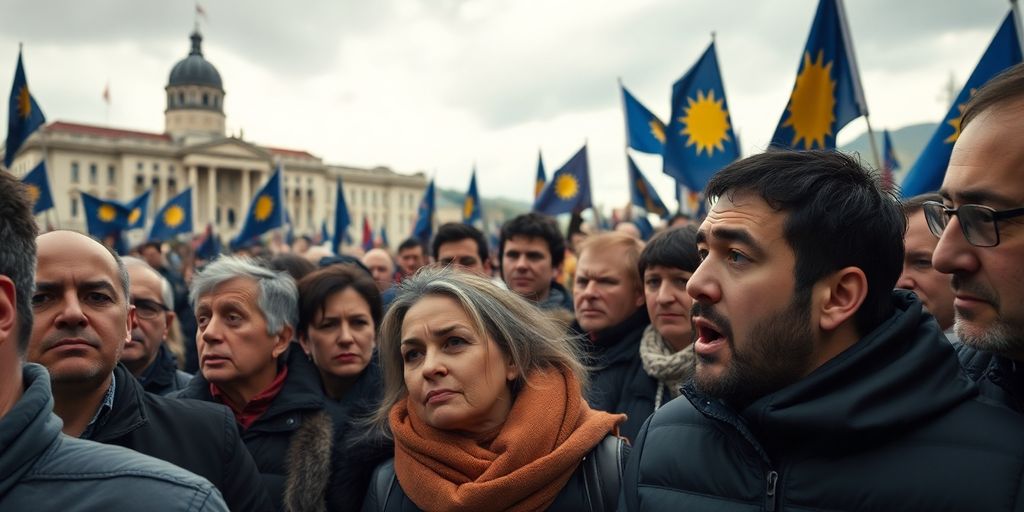Kosovo’s election authority has made a controversial decision to bar the main ethnic Serb party, Srpska Lista, from participating in the upcoming parliamentary elections scheduled for February 9, 2024. This move has sparked significant political tensions between Kosovo and Serbia, raising concerns among international observers about the implications for democracy in the region.
Key Takeaways
- Kosovo’s Central Election Commission has denied certification to the Srpska Lista party.
- The ban is justified by the party’s nationalist stance and close ties to Serbia.
- Serbian President Aleksandar Vučić has condemned the decision, calling it an attempt to eliminate political opposition.
- The U.S. and EU have criticized the ban, emphasizing the need for free and fair elections.
Background of the Ban
The Central Election Commission (CEC) of Kosovo announced on December 23 that it would not certify Srpska Lista, citing the party’s refusal to recognize Kosovo as an independent state. Instead, the party’s leader, Zlatan Elek, has referred to Kosovo as "Kosovo i Metohija," a term that implies it is an autonomous province of Serbia.
The CEC’s decision was supported by several members who expressed concerns over the party’s anti-independence rhetoric and its close connections with Serbian leadership, including President Aleksandar Vučić. This decision is seen as a significant escalation in the already strained relations between Kosovo and Serbia, which have been fraught with tension since Kosovo declared independence in 2008.
Reactions to the Decision
The ban has elicited strong reactions from various stakeholders:
- Srpska Lista: The party has labeled the ban as "political violence" against the ethnic Serb community in Kosovo and plans to appeal the decision.
- Serbian Government: President Vučić criticized the move, claiming it aims to eliminate the only political opposition in Kosovo. He has also communicated with Russian officials regarding the situation, framing it as a violation of international law.
- International Community: The U.S. embassy in Pristina expressed concern, stating that such actions undermine democratic principles and could lead to political manipulation of the electoral process. EU officials echoed these sentiments, emphasizing that the certification process should adhere to legal standards rather than political motivations.
Implications for Upcoming Elections
The parliamentary elections on February 9 are crucial for Prime Minister Albin Kurti, whose party previously won a supermajority in 2021. The absence of Srpska Lista, which holds all 10 seats reserved for ethnic Serbs in the 120-seat parliament, could significantly alter the political landscape in Kosovo.
The elections are expected to test Kurti’s governance and the stability of his administration, especially in light of the ongoing tensions with Serbia. The international community is closely monitoring the situation, as the outcome could have far-reaching implications for the region’s stability and the future of Kosovo’s political framework.
Conclusion
The decision to bar Srpska Lista from the upcoming elections has intensified political tensions in Kosovo and raised alarms about the state of democracy in the region. As the situation unfolds, the responses from both local and international actors will be critical in shaping the future of Kosovo’s political landscape and its relationship with Serbia.
Sources
- Kosovo election authority bans main ethnic Serb party from parliamentary vote – The Washington Post, Washington Post.
- Kosovo bars Serb party from vote over anti-independence stances | Euronews, Euronews.
- Kosovo election authority bans main ethnic Serb party from parliamentary vote – KTVZ, KTVZ.
- Kosovo’s ethnic Serb party says its ban from a parliamentary election is ‘political violence’ – KTVZ, KTVZ.
- Kosovo bans ethnic-Serb party from election, drawing Western criticism – Euractiv, Euractiv.






